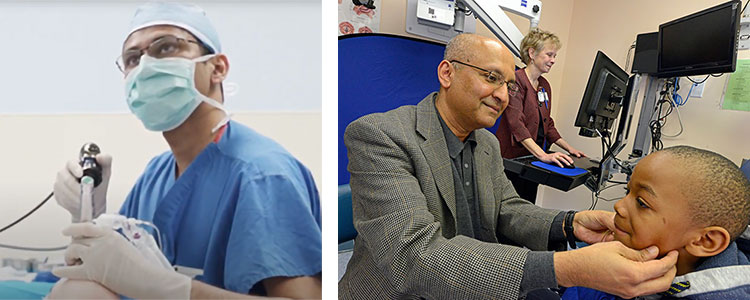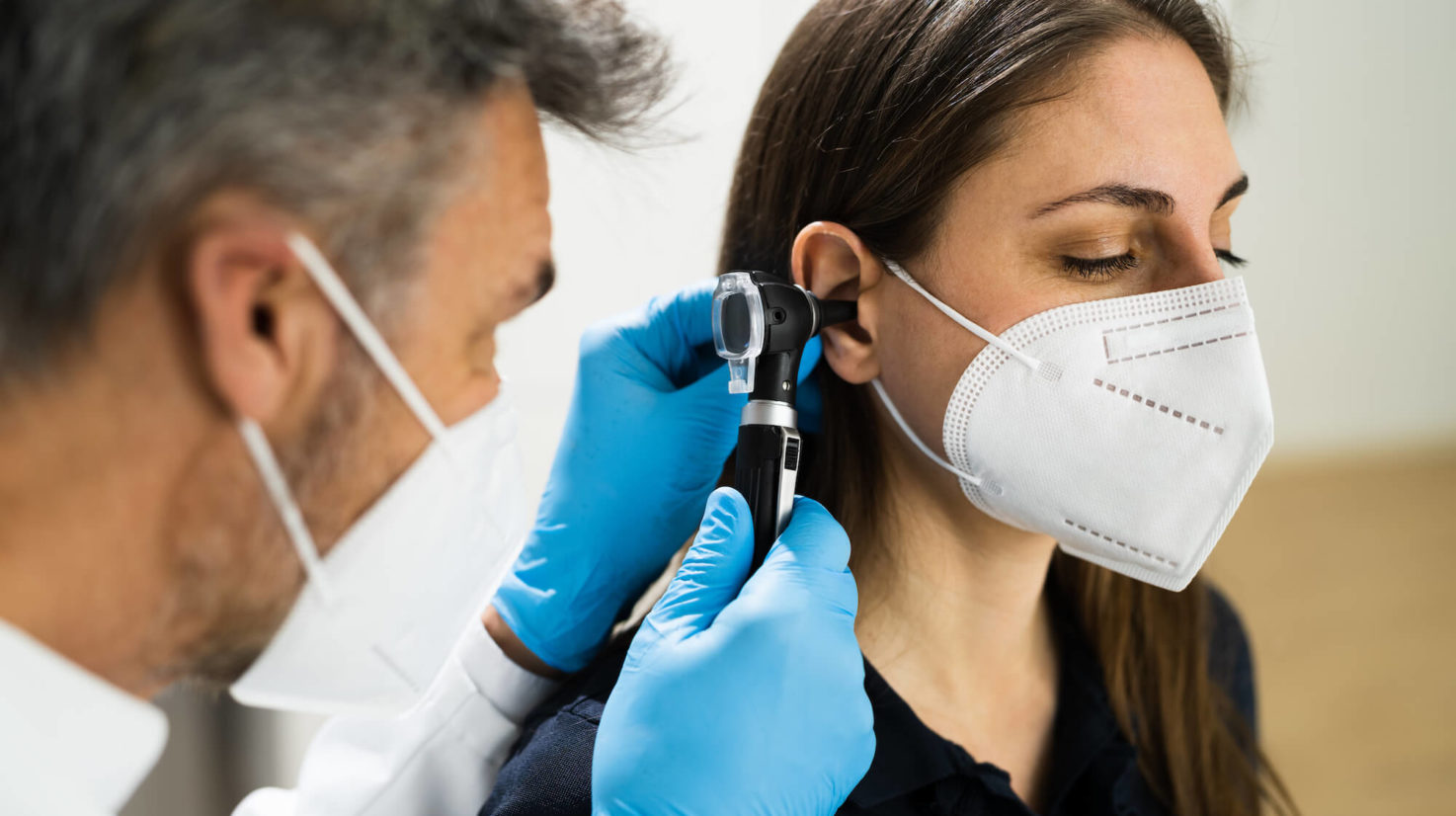Exploring the Field of Otolaryngology: What to Anticipate When You Seek Advice From an ENT
Otolaryngology, commonly described as ENT, includes the diagnosis and therapy of nose, ear, and throat conditions. For those experiencing associated problems, getting in touch with an ENT specialist can supply clearness and relief. Understanding what to anticipate during such consultations is vital for reliable interaction and treatment. This introduction will detail key elements of the ENT experience, including usual reasons for brows through and the processes associated with medical diagnosis and treatment.

Comprehending Otolaryngology: A Review
Otolaryngology, usually referred to as ENT (Throat, nose, and ear) medication, is a specific branch of medicine that focuses on the diagnosis and treatment of conditions affecting these vital locations of the human body. This field encompasses a large range of problems, including those pertaining to hearing, equilibrium, respiratory function, and speech. Otolaryngologists are educated to handle both medical and surgical therapies, utilizing innovative methods and modern technologies. Their competence extends beyond conventional disorders, resolving concerns such as allergic reactions, sinus infections, and hearing loss. In addition, they play an essential function in the administration of head and neck cancers, giving thorough care customized to individual person demands. Overall, otolaryngology continues to be essential for maintaining wellness and lifestyle in damaged people.
Common Reasons to See an ENT Specialist
Numerous people seek the competence of an ENT expert for a selection of reasons, mirroring the varied nature of conditions that affect the nose, ear, and throat. Typical problems include chronic sinusitis, which commonly brings about consistent nasal blockage and face discomfort. Allergic reactions and their linked signs, such as sneezing and itching, also trigger brows through to these professionals (ENT Doctor). Hearing loss, whether sudden or gradual, is another substantial reason for assessment. Additionally, people may look for evaluation for throat disorders, including relentless hoarseness or ingesting problems. Sleep apnea, identified by cut off breathing during sleep, is frequently resolved by ENT experts. Each of these conditions highlights the importance of specialized treatment in handling intricate ENT-related health issues
Planning for Your ENT Consultation
When preparing for an ENT consultation, it is important to collect appropriate details and consider any type of details worries. Individuals ought to assemble a detailed case history, including previous ear, nose, or throat problems, surgical treatments, and existing medicines. Recording signs and symptoms-- such as regularity, severity, and duration-- can offer valuable understandings for the ENT expert. Furthermore, people should prepare a listing of inquiries they desire to ask, guaranteeing that all worries are addressed during the browse through. Bringing along any appropriate medical records or test results can better aid the ENT in recognizing the patient's problem. People must validate their visit details, including area, time, and date, to reduce any kind of final confusion. Proper prep work can improve the efficiency of the examination and cause better end results.
What to Anticipate During the Consultation
As the consultation starts, the patient can anticipate to involve in a comprehensive conversation with the ENT expert about their symptoms and clinical history. The expert will certainly ask about the duration, regularity, and seriousness of signs and symptoms such as hearing loss, nasal blockage, or aching throat. In addition, the person's previous clinical conditions, drugs, and any kind of appropriate family members history will certainly be examined, helping the specialist in creating a total understanding of the patient's wellness. The ENT may additionally ask about way of living factors, such as direct exposure to allergens or irritants. This open dialogue establishes a structure for the appointment, making sure that the individual's worries are resolved and setting the phase for any essential analyses or recommendations for therapy.
Diagnostic Examinations and Procedures in Otolaryngology
A variety of diagnostic tests and procedures are crucial in otolaryngology to precisely assess and detect problems influencing the nose, ear, and throat. Common tests consist of audiometry, which measures hearing function, and tympanometry, examining center ear pressure. Nasal endoscopy permits visualization of the nasal flows and sinuses, while laryngoscopy checks out the throat and singing cables. Imaging strategies, such as CT scans and MRIs, provide comprehensive views of head and neck frameworks. Allergy testing might also be carried out to identify triggers for sinus or respiratory concerns. These diagnostic devices allow ENT professionals to create an extensive understanding of patients' problems, ensuring tailored and efficient monitoring plans. Correct medical diagnosis is important for effective therapy outcomes in otolaryngology.
Treatment Alternatives Used by ENT Specialists
ENT specialists supply a variety of therapy alternatives customized to attend to particular problems affecting the ear, nose, and throat. These therapies vary from conservative strategies, such as medicine and way of life adjustments, to even more intrusive treatments. As an example, allergic reactions might be managed with antihistamines or immunotherapy, while chronic sinusitis may need nasal corticosteroids or sinus surgical treatment. For hearing loss, ENT specialists frequently recommend listening devices or medical interventions like cochlear implants. In situations of throat problems, alternatives can include speech treatment or procedures to remove obstructions. In addition, they may give support for managing sleep apnea, including making use of CPAP devices or medical treatments. On the whole, the objective is to improve individuals' top quality of life through personalized treatment and efficient treatment approaches.
When to Look For Follow-Up Treatment With an ENT
When to look for follow-up care with an ENT professional is vital for handling recurring signs or problems associated to nose, throat, and ear problems, acknowledging. Individuals should think about setting up a follow-up consultation if signs and symptoms persist in spite of initial treatment, such as persistent ear discomfort, nasal congestion, or throat pain. Adjustments in hearing, equilibrium problems, or uncommon nasal discharge might likewise necessitate additional assessment. Furthermore, if a patient experiences adverse effects from recommended medicines or has actually gone through a surgical procedure, follow-up treatment is very important to keep track of healing and address any issues. Timely consultations can guarantee effective monitoring of problems, stop prospective problems, and offer peace of mind regarding one's health and wellness. Seeking follow-up care promotes proactive health and wellness administration in otolaryngology.
Regularly Asked Inquiries

What Certifications Should I Search for in an ENT Professional?
When seeking an ENT expert, one should seek board qualification, appropriate experience, and solid client testimonials. Furthermore, effective communication abilities and a compassionate method can considerably improve the general therapy experience.
Just how Do I Select the Right ENT for My Demands?
Selecting the appropriate ENT expert entails examining their credentials, experience, and client testimonials (Hearing). It is vital to contemplate their interaction design and method to treatment, ensuring they align with the individual's specific wellness needs and preferences
Exist Any Kind Of Threats Associated With ENT Procedures?
The risks connected with ENT procedures may include infection, bleeding, anesthetic difficulties, and prospective damages to surrounding frameworks. Individuals should talk about these risks with their doctor to understand private problems and warranty notified decisions.
Exactly How Can I Handle Anxiety Prior To My ENT Appointment?
To manage anxiety before a visit, people can exercise deep breathing exercises, visualize positive end results, prepare questions in development, and look for assistance from pals or family members, fostering a sense of reassurance and calmness.
What Should I Do if I Experience Adverse Effects From Treatment?
The person must without delay report them to their medical care check here provider if side effects from therapy happen. Adjustments to treatment or added interventions might be needed to assure safety and security and efficiency in managing their problem - Otolaryngology. As the assessment begins, the individual can expect to involve in a thorough conversation with the ENT professional about their signs and symptoms and medical history. These analysis tools enable ENT professionals to establish a complete understanding of clients' problems, guaranteeing customized and efficient management strategies. ENT professionals use a variety of therapy choices tailored to resolve certain conditions influencing the throat, ear, and nose. When seeking an ENT professional, one should look for board accreditation, pertinent experience, and solid patient evaluations. Picking the right ENT expert involves assessing their credentials, experience, and patient evaluations
Comments on “A Complete Guide at Otolaryngology and Its Role in Treating Throat Disorders”